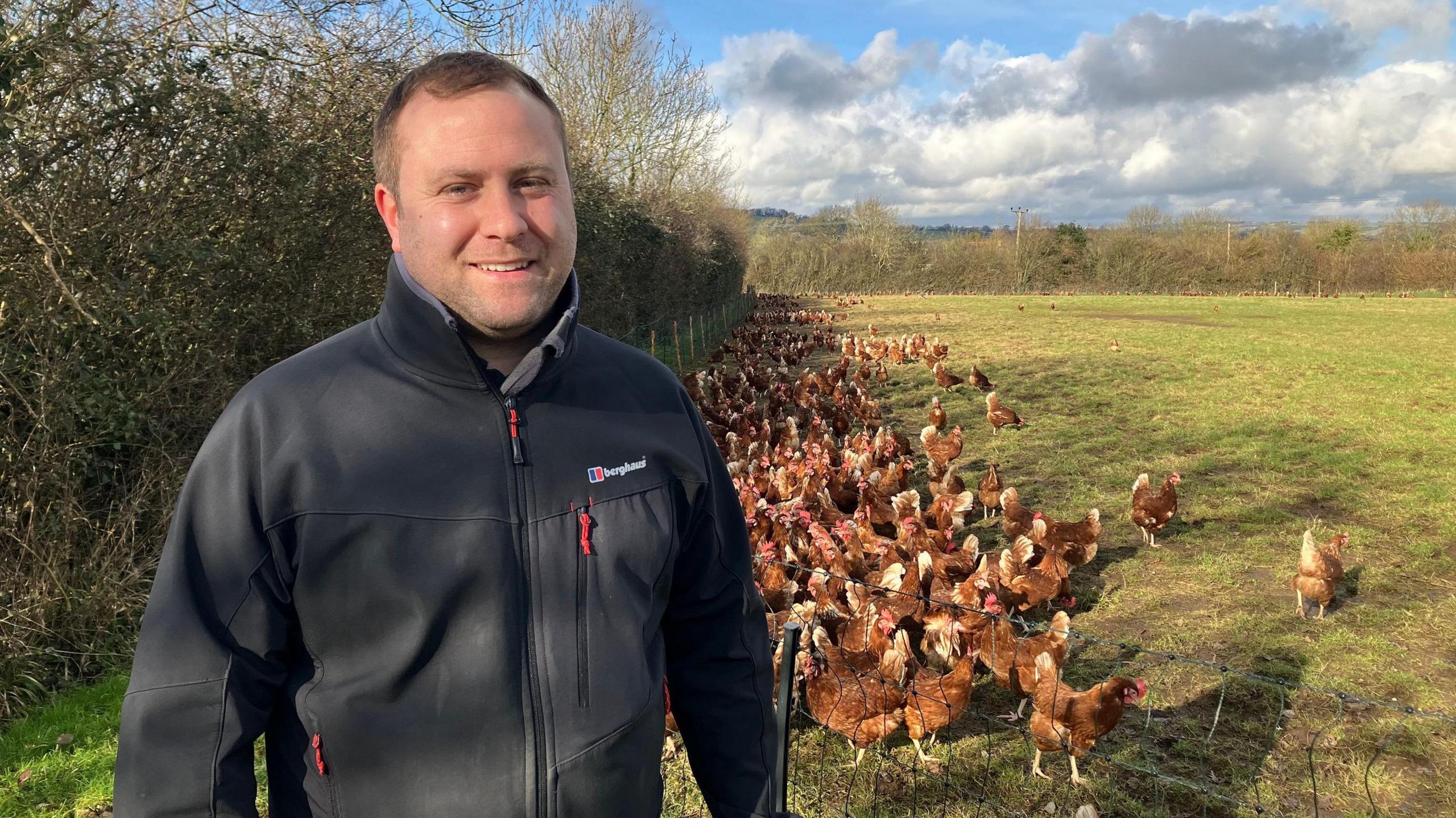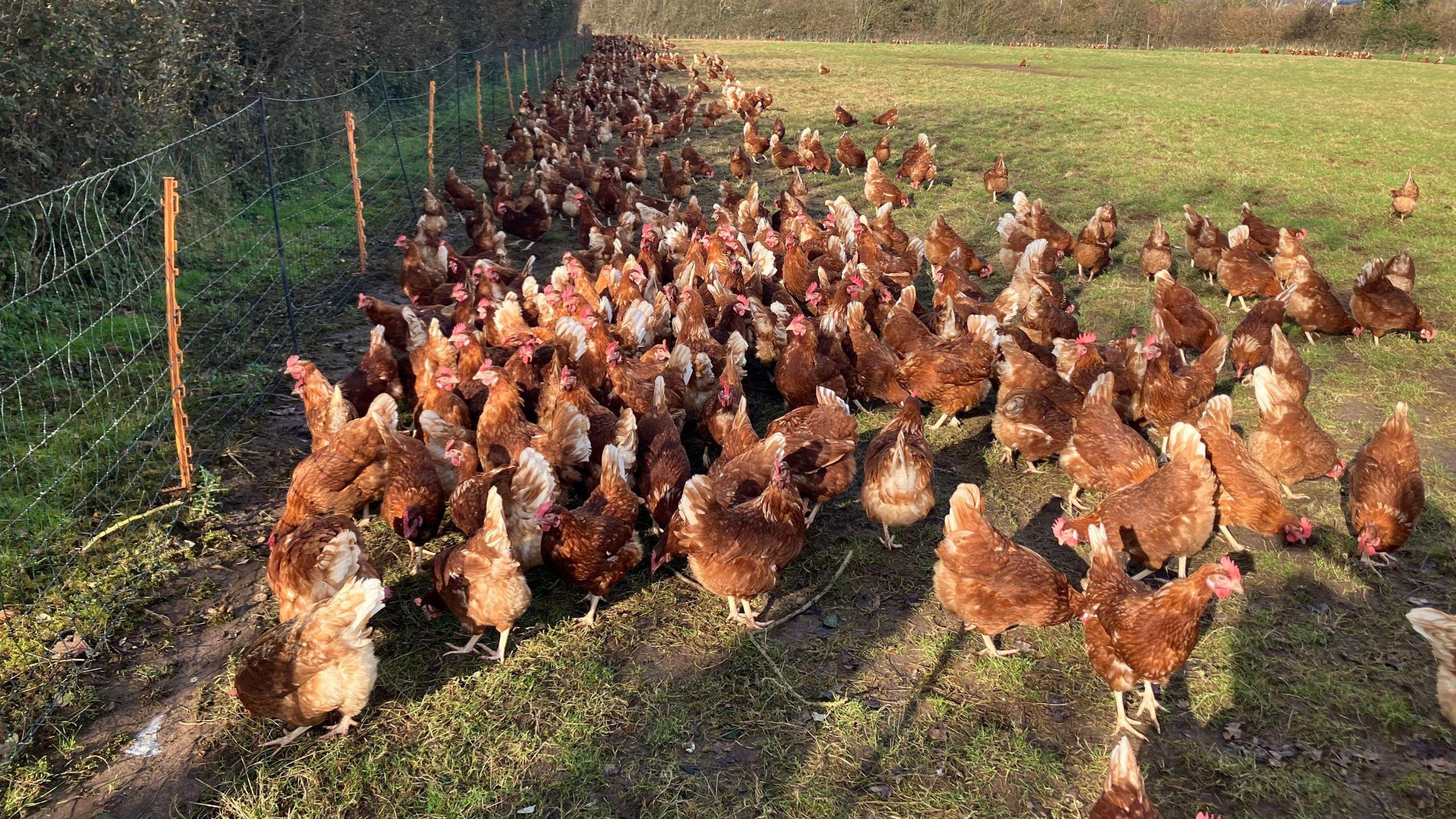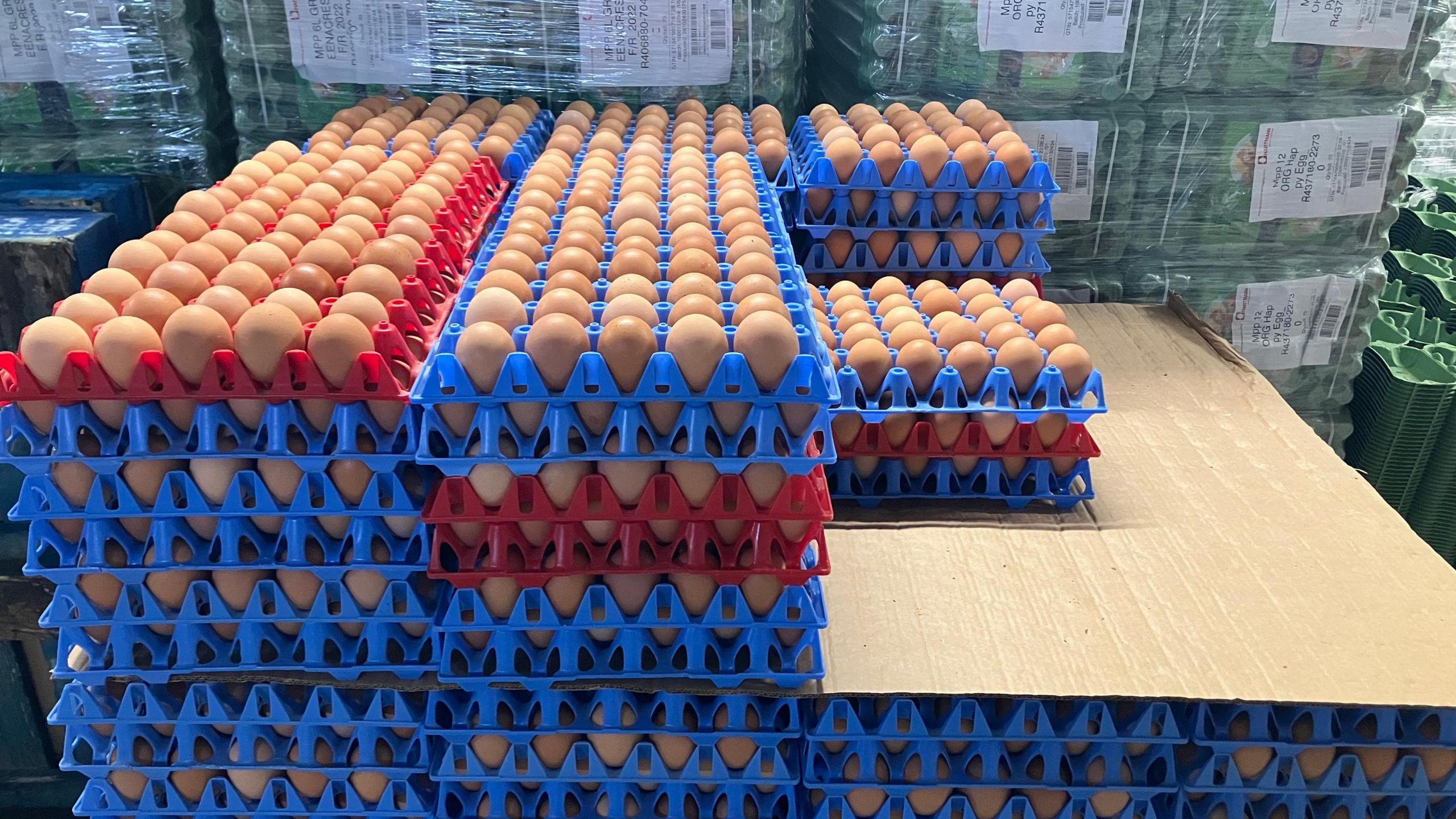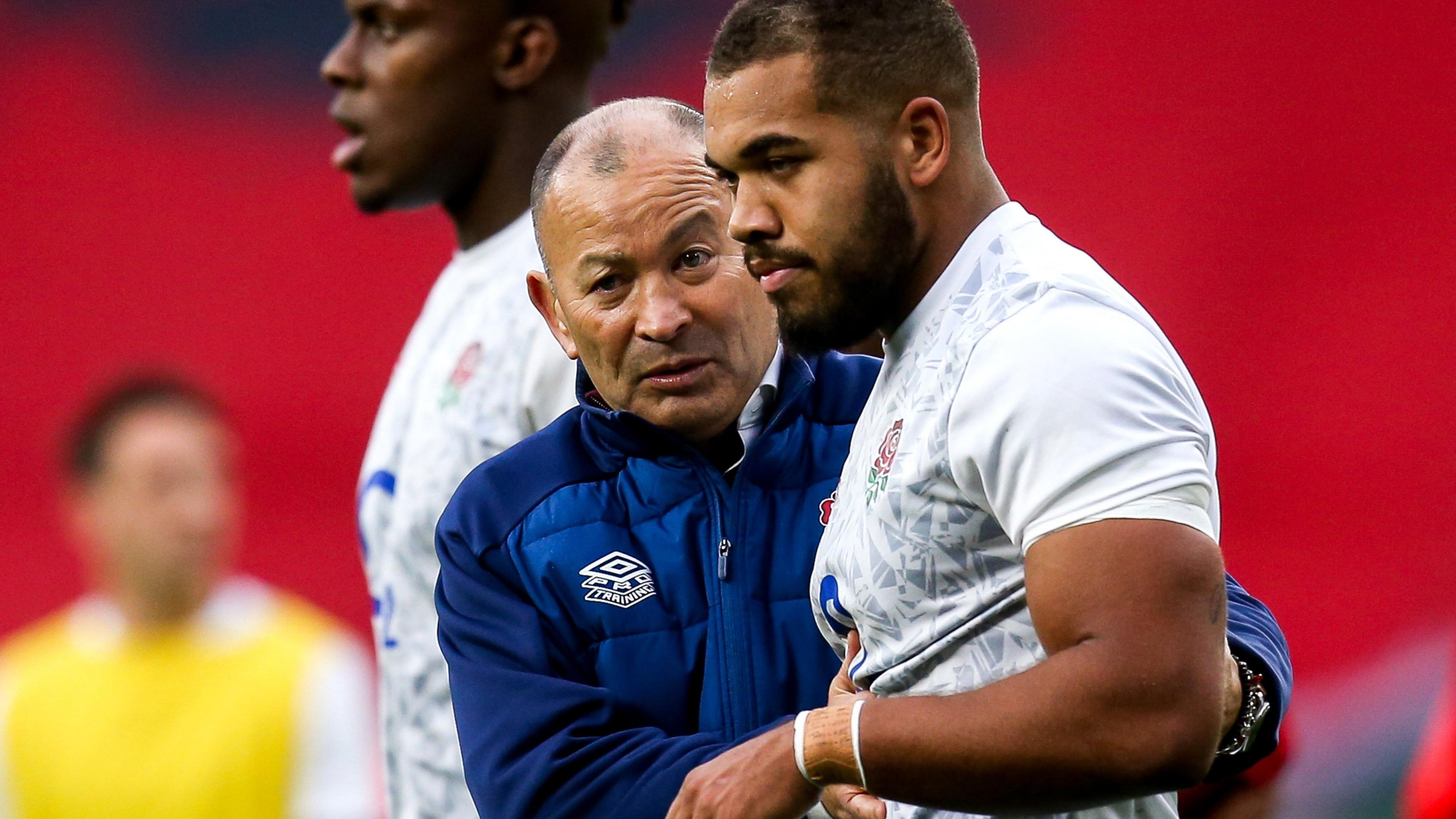
Poultry farmers across the UK are calling on the government to do more to help
Laura Jones
BBC Points West
Sarah Turnnidge
BBC News, West of England
A farmer has urged the government to enforce stricter bird flu rules amid fears of an outbreak of the disease.
While the South West has seen few cases of the highly-contagious disease, farmers across the UK have warned of a “devastating” situation.
North Somerset free range poultry farmer Tom Wood has called on officials to allow hens to be housed indoors to protect them.
A spokesperson for the Department for Environment, Food & Rural Affairs (Defra) told the BBC that “scrupulous biosecurity remains the most critical form of defence”.
Mr Wood, who took over the running of the Compton Martin farm from his father in 2010, has more than 10,000 hens and sells about 100,000 eggs a week.
But like every poultry farm across the UK, his birds are at risk of becoming infected with bird flu – a highly-contagious disease spread through bird droppings or other infected matter such as saliva.

Just one case could mean thousands of birds are culled, farmers say
Rates of the disease usually increase over the autumn and winter, due to the migration patterns of waterfowl as well as improved conditions for virus survival.
While instances of humans falling ill due to contact with infected animals are rare, one person in the West Midlands contracted a human version of the flu in January.
While farmers like Mr Wood have extremely strict biosecurity measures in place for workers to try and limit the spread of the disease, there are concerns that free-range poultry could be exposed at any time by other birds flying overhead – leaving entire flocks at risk of being culled.
“All it needs – and this is with any farm – is for one of the hens to have it on their feet or to become infected […] and it’s that contagious that the whole flock unfortunately would have to be culled,” said Mr Wood.
He could, he explained to the BBC, keep his birds inside during the high-risk season, but this would mean losing his free-range status.
This would not be the case, he said, if Defra introduced a mandatory housing rule for birds across the country – rather than just the areas in which outbreaks had been reported.
He said: “If there is a slight risk at all anywhere in the country – even if we’re doing everything we can to stop us taking bird flu in to the building – we can’t then help the birds outside.
“Obviously we want the birds to be outside, but we can’t protect what flies over them.”

Farmers across the UK have called for a vaccination plan
Mr Wood and other farmers have called on the UK government to introduce a bird flu vaccine for poultry.
While vaccination is permitted in some licensed zoos, it is not available to farmers, and the government says that while it can help reduce the number of deaths, some vaccinated birds would still be able to transmit the virus.
Defra has launched a taskforce to investigate the role of vaccination, with a report due later this spring.
“If it’s going to do what all farmers want it to do – protect the birds and basically not have to cull them if they become infected – then I think that is going to be massively beneficial for the country and across the world really,” Mr Wood said.
Prevention zones introduced
Fellow poultry farmer Phillip Greenhill, based near Chippenham, echoed his fellow farmer’s comments.
“If there is a vaccine and it’s effective then definitely [it should be introduced] – anything that we can use as a tool to help against disease and viruses is really important,” he said.
“Our government needs to be close to testing it, trialling it, and seeing if it is an option for us to use.”
A Defra spokesperson said it was investing in the research and development of vaccines through its taskforce, but added: “Scrupulous biosecurity remains the most critical form of defence in keeping birds safe.”
“We have taken further measures in the past weeks to limit the spread of outbreaks including introducing prevention zones to cover the whole of England and mandatory housing measures in those areas most affected,” they said.
Get in touch
Tell us which stories we should cover in Bristol
Follow BBC Bristol on Facebook, external, X, external and Instagram, external. Send your story ideas to us on email or via WhatsApp on 0800 313 4630.





